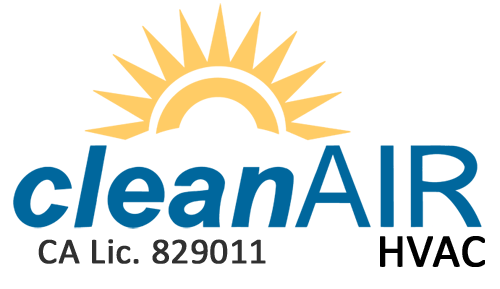
To avoid rising energy costs and work toward a more sustainable life, many homeowners are looking for ways to enjoy the same standards of comfort while reducing utility bills. As part of the Inflation Reduction Act, federal tax credits are available for high efficiency HVAC equipment. These credits offer significant savings, provided that homeowners choose qualifying equipment and submit the appropriate form.
If you’re trying to avoid a long process, we can share something that will help! Clean Air HVAC hopes this guide will provide all the information necessary to take full advantage of HVAC tax credits this year. Here’s what you’ll need to do.
Understanding the HVAC Tax Credits
These valuable tax credits for energy-efficient home improvements are just one goal of the recent Inflation Reduction Act. With the higher cost of energy making an impact, helping more homeowners upgrade their equipment is always beneficial. The key provision of these credits is to mitigate costs associated with installation and renovation projects. Two of note are the Energy Efficiency Home Improvement Credit and the Residential Clean Energy Credit.
However, to earn any of the credits, you’ll have to fill out IRS Form 5695. Additionally, this form is submitted for the same tax year the upgrades were installed, not bought.
Maximizing Savings with the Energy Efficiency Home Improvement Credit
Through 2032, the Energy Efficiency Home Improvement Credit provides up to $3,200 annually for energy-efficient home upgrades. This equals 30% of the total project’s cost. You should be aware that in order to get back the maximum amount, it means making severel investments. For example, you’ll get up to $2,000 for installing a higher efficiency heat pump. This can be paired with an additional $1,200 in credits for more projects in the tax year.
While new heat pump installation projects are a key target for this incentive, other HVAC upgrades like efficient furnaces and air conditioners also qualify. It will help to confirm the make and model’s energy efficiency rating is sufficient to qualify.
Residential Clean Energy Credit
The Residential Clean Energy Credit provides 30% savings on a number of other residential clean energy efficiency projects. Eligibility is restricted to homeowners looking for new clean energy solutions for their home. While the Home Improvement Credit works primarily with utilities and HVAC systems, this credit targets renewable energy sources like solar and wind energy.
Some key details of this tax credit include the requirement that installation must occur between 2022 and 2032. But at the same time, homeowners can keep the excess credit to reduce future taxes. This is a great way to soften the entry into investing in clean energy.
What Else Is Eligible for These Tax Credits?
Because HVAC systems are one of the major reasons for high energy bills, these tax credits can guide you to the most energy-efficient options. But home energy efficiency can be improved in lots of other ways. Apart from the previously listed HVAC upgrades, {you could also choose|other eligible items include|you also have access to:
- Energy-saving heat pump water heating systems
- Modern electrical panel improvements
- Upgraded electrical wiring
- Insulation, air sealing and ventilation enhancements
- High-efficiency electric stoves, cooktops, ranges or ovens
- Heat pump clothes dryers
- Water boilers
Just like with installing one or more HVAC systems, you’ll need to check that your preferred make and model features the eligible energy efficiency ratings.
Maximizing Your 2024 HVAC Tax Credits: Top 3 Tips
While any of these upgrades can improve your home’s energy efficiency, some planning ahead will ensure the best chance at more long-term benefits. Maximize your HVAC tax credits with these three tips:
- Conduct a home energy audit to identify impactful upgrades. Trust experienced HVAC companies to pinpoint essential products and services.
- Improve your home's thermal efficiency with better windows and doors.
- Look into rebates for clean energy projects from utilities. Renewable sources like solar, wind, and geothermal contribute to community power grid sustainability.
- Remember to consider financing plans offered by service providers.
Clean Air HVAC Can Help You Secure HVAC Credits for 2024
Partner with local HVAC professionals like Clean Air HVAC for help with home energy audits and new installation projects. Our experienced installers can deliver whatever you need for home energy efficiency upgrades.


